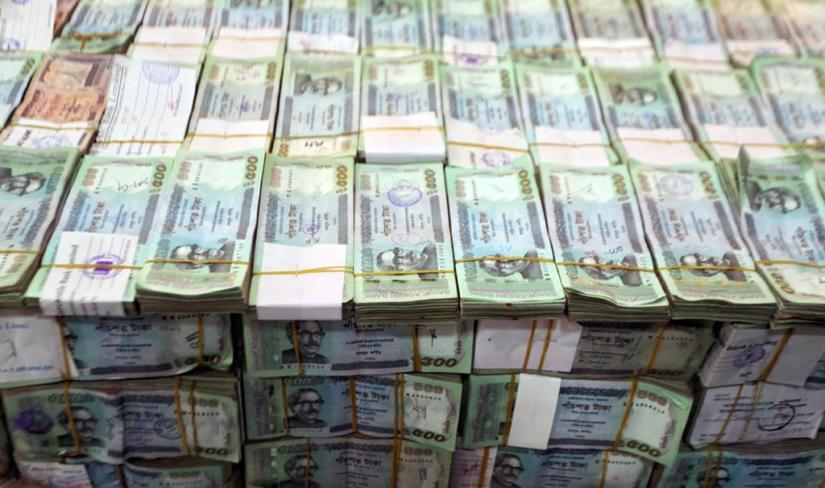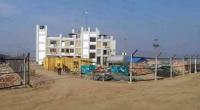 Loan rescheduling by banks rose by 21.39 percent to Tk 232.10 billion in 2018, up from Tk 191.2 billion the previous year, according to a recent report by the Bangladesh Bank.
Loan rescheduling by banks rose by 21.39 percent to Tk 232.10 billion in 2018, up from Tk 191.2 billion the previous year, according to a recent report by the Bangladesh Bank.
There may be several reasons for this increased amount of rescheduled loans, such as over leverage, slowdown of external demand for export-oriented products, poor due diligence, and negligence in compliance of risk management practices, the central bank observed in its Financial Stability Report 2018.
According to it, loans rescheduled in industrial sector (regardless of the size of the industries) were 26.8 percent.
RMG and textile sector accounted for 21.2 percent of the industrial rescheduled loans.
Among other categories, commercial loans, other non-specified sectors (including ship building and breaking, transportation and communication and consumer credit, etc) and foreign trade (export credit, import credit and loans against trust receipts) shared 8.8 percent, 12.7 percent and 9.4 percent of the total rescheduled loans respectively.
The rescheduled loan ratio (rescheduled loan/total loan outstanding) of industrial sector was the highest among all sectors, with 20.0 percent followed by RMG, construction and agricultural sectors with 15.2 percent, 12.2 percent and 11.5 percent respectively.
The central bank had earlier allowed banks to reschedule their short-term agricultural credit with relaxed down payments. The rates of rescheduled loans in the remaining sectors were below 10 percent.
There are some sectors including shipbuilding, which have real problems, and the banks have rescheduled loans defaulted in these sectors, said Ahsan H Mansur, executive director of Policy Research Institute.
Higher interest rate in 2018 was another reason for loan rescheduling, he said before adding that major defaulters were going scot free using the opportunity of loan rescheduling.
Many defaulters got their loans rescheduled just before the general election last year in order to be able to contest the polls.
At the end of September 2018, banks non-performing loan stood at Tk 993.70 billion — the highest in Bangladesh's history. It came down to Tk 939.11 billion towards the end of the year.
The Financial Stability Report says, Bangladesh's overall macro- economy was stable during the fiscal year 2017-18.
GDP growth rate increased to 7.9 percent, which was 7.3 percent in the previous fiscal year. The annual average inflation was 5.5 percent and the foreign exchange reserve stood at $32 billion in December 2018.
Banking sector's assets increased by 11.5 percent at the end of 2018. Loans and advance 14.1 percent and deposits increased by 10.5 percent. The proportion of capital and risk-based assets in banking sector has decreased slightly to 10.5 percent, which is more than the necessary minimum rate of 10 percent, says the report.
 Business
Business
30860 hour(s) 42 minute(s) ago ;
Afternoon 03:37 ; Wednesday ; Apr 24, 2024
Loan rescheduling rises by over 21 percent
Send
Mehedi Hasan
Published : 06:00, May 30, 2019 | Updated : 06:00, May 30, 2019
Published : 06:00, May 30, 2019 | Updated : 06:00, May 30, 2019
0 ...0 ...
/zmi/
Topics: Top StoriesExclusive
- KOICA donates medical supplies to BSMMU
- 5 more flights to take back British nationals to London
- Covid19: Rajarbagh, Mohammadpur worst affected
- Momen joins UN solidarity song over COVID-19 combat
- Covid-19: OIC to hold special meeting
- WFP begins food distribution in Cox’s Bazar
- WFP begins food distribution in Cox’s Bazar
- 290 return home to Australia
- Third charter flight for US citizens to return home
- Dhaka proposes to postpone D8 Summit
Unauthorized use of news, image, information, etc published by Bangla Tribune is punishable by copyright law. Appropriate legal steps will be taken by the management against any person or body that infringes those laws.
Bangla Tribune is one of the most revered online newspapers in Bangladesh, due to its reputation of neutral coverage and incisive analysis.
F R Tower, 8/C Panthapath, Shukrabad, Dhaka-1207 | Phone: 58151324; 58151326, Fax: 58151329 | Mob: 01730794527, 01730794528






